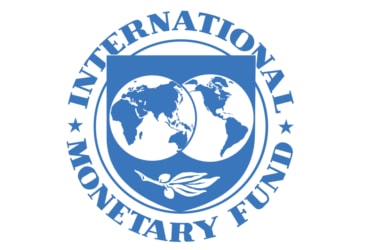▼ New Zealand tops the Doing Business 2017 rankings, India at 130. [10-27-16]
 The World Bank Group on 25th October 2016 released the report entitled Doing Business 2017: Equal Opportunity for All. The World Bank Group on 25th October 2016 released the report entitled Doing Business 2017: Equal Opportunity for All.
- It is the 14th report in a series of annual reports measuring the regulations that promote business activity as opposed to those that constrain it
- Data in Doing Business 2017 report are current as per June 1, 2016
- Indicators are used to analyse economic outcomes and identify the nature of reforms that have been brought about through business regulation
- It finds that entrepreneurs in 137 economies saw improvements in local regulatory frameworks in the previous year- between June 2015 and 2016, the report documented 283 business reforms
- Reforms reducing the complexity and cost of regulatory processes were common in 2015-2016
- The next most common reforms were in the areas of paying taxes, obtaining credit and trading across borders
- In its global country rankings of business efficiency, the coveted first rank was awarded to New Zealand
- Singapore followed second and Denmark was at the third positions
- Hong Kong SAR, China, Korea, Norway, the UK and United States as well as Sweden were among the top 10 countries in international rankings
- Brunei Darussalam, Kazakhstan, Kenya, Belarus, Indonesia, Serbia, Georgia, and Pakistan, the UAE and Bahrain were top gainers
- These top 10 rank improving countries implemented 48 regulatory reforms marking ease of doing business
- All the economies in the region implemented the reforms easing the process of doing business, though Europe and Central Asia were regions with the most number of economies implementing at least one reform
- Developing countries carried out more than 75 percent of the 283 reforms in the past year
- Sub-Saharan Africa accounted for over one-quarter of all reforms
- Starting a business takes 21 days worldwide compared with 46 days 10 years ago
- It also features expansions to the Paying Taxes indicator to cover post-filing processes such as tax refunds, tax audits and administrative tax appeals to better comprehend the overall tax environment
- It also studies procurement in 78 economies across 5 main areas: accessibility and transparency, bid security, payment delays, incentives for MSMEs and complaint mechanisms
- Doing Business includes a gender dimension in 4 of 11 topic sets- Starting a business, registering property and enforcing contract presenting a gender dimension for the first time this year
- The report features 6 case studies in areas of getting electricity, gaining credit, legal rights, credit information, protection of minority investors, paying taxes and trading across borders
- East Asia and the Pacific is home to two of the world’s leading 10 economies– Singapore, the Hong Kong SAR, China and two of the top 10 improvers– Indonesia and Brunei Darussalam
- The economies of the region implemented close to 45 reforms to improve the ease of carrying out business
- The Europe and Central Asia was a major reformer in the past year, with Belarus, Georgia, Serbia and Kazakhstan among the top 10 improvers in the world
- Business reform activity accelerating in latin America and the Caribbean with over 2/3 of the region’s economies implementing around 32 reforms in the past year, compared with 24 reforms in the previous year
- MENA region saw the most reforms carried out in the past year since 2009, with over 35 reforms in 15 of the region’s 20 economies
- UAE and Bahrain were among the world’s top 10 improvers
- In South Asia, 5 of the region’s 8 economies implemented a total of 11 reforms in the past year as against nine in the previous year
- Pakistan, which is among the world’s top 10 improvers, implemented several reforms as did India and Sri Lanka
- African economies stepped up massive pace of reforms as well
- India moved one rank up to the 130th position
- This marginal improvement came, marking slight improvement in four indicators- getting electricity, enforcing contracts, trading across borders and registering property
- In the 2017 rankings, the only major improvement for India was seen in getting electricity
- In terms of starting a business, Indian ranking went down to 155 from 151 last year
- This was also true for registering a property
- For resolving insolvency, the position of the country slid a single rank to 136
- India’s ranking in trading across borders fell by 10 spots to 143 though the World Bank recognised Indian reforms in making imports and exports easier through the launch of the ICEGATE portal
- The ranking covers data from Delhi and Mumbai, with weights of 53 and 47 percent respectively
|
▼ Growth still resilient in India: World Economic Outlook [10-10-16]
 The International Monetary Fund on Oct 4, 2016 released the World Economic Outlook 2016. The report projects global growth at 3.1 percent in 2016 with slight increase to 3.4. The International Monetary Fund on Oct 4, 2016 released the World Economic Outlook 2016. The report projects global growth at 3.1 percent in 2016 with slight increase to 3.4.
- Persistent stagnation, particularly in advanced economies, could further fuel anti-trade sentiment stifling growth
- Growth in emerging Asia and especially India continues to be resilient and India’s GDP is projected to expand at 7.6 percent in 2016 and 2017, considered the fastest pace among the major global economies
- The IMF urged India to continue reform of its tax system and eliminate subsidies to provide more resources for health care, infrastructure and education
- Advanced economies will expand just 1.6 percent in 2016 less than 2.1 percent pace of 2015- forecast is .2 percent below the July forecast which was 1.8 percent
- The IMF has marked down its forecast for 2016 to 1.6 percent from 2.2 percent forecasted in July
- US growth is likely to pick up to 2.2 percent in 2017
- Following the Brexit referendum of June, IMF has forecasted that UK growth will slow down to 1.8 percent in 2016 and 1.1 percent in 2017
- The EU area will expand 1.7 percent in 2016 and 1.5 percent in 2017, as against 2 percent growth in 2015
- Japan, the world’s number three economy will remain subdued at 0.5 percent in 2016 and 0.6 percent in 2017
- In the emerging markets and developing economies, growth will accelerate for the first time in six years to 4.2 percent, slightly higher than the July forecast of 4.1 percent
- In 2017, emerging economies are expected to grow at 4.6 percent
- China’s economy, the world’s second largest is forecast to expand 6.6 percent in 2016 and 6.2 percent in 2017 down from the growth of 6.9 percent in the previous year
- Sub-Saharan Africa’s largest economies continue to struggle with lower commodity revenues weighing in on growth in the region
- Nigeria’s economy will shrink to 1.7 percent in 2016 and South Africa will barely expand
- By contrast, several of the region’s non-commodity exporters including Cote d’Ivoire, Kenya, Ethiopia and Senegal will grow at a more robust pace of greater than 5 percent in the year
- Economic activity in the region slowed as several countries are mired in recession, with recovery expected to take hold in 2017
- Venezuela’s output is forecast to 10 percent in 2016 and will shrink another 4.5 percent in 2017
- Brazil will see a contraction of 3.3 percent in 2016 yet it is expected to grow at 0.5 percent in 2017 on the assumption of declining political and policy uncertainty and waning effects of past economic shocks
- Countries in the Middle East are also confronting challenging conditions from subdued oil prices and civil conflict as well as terrorism.
|